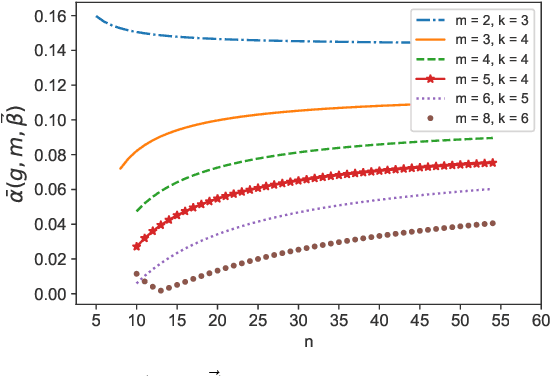On Top-$k$ Selection from $m$-wise Partial Rankings via Borda Counting
Paper and Code
Apr 11, 2022
We analyze the performance of the Borda counting algorithm in a non-parametric model. The algorithm needs to utilize probabilistic rankings of the items within $m$-sized subsets to accurately determine which items are the overall top-$k$ items in a total of $n$ items. The Borda counting algorithm simply counts the cumulative scores for each item from these partial ranking observations. This generalizes a previous work of a similar nature by Shah et al. using probabilistic pairwise comparison data. The performance of the Borda counting algorithm critically depends on the associated score separation $\Delta_k$ between the $k$-th item and the $(k+1)$-th item. Specifically, we show that if $\Delta_k$ is greater than certain value, then the top-$k$ items selected by the algorithm is asymptotically accurate almost surely; if $\Delta_k$ is below certain value, then the result will be inaccurate with a constant probability. In the special case of $m=2$, i.e., pairwise comparison, the resultant bound is tighter than that given by Shah et al., leading to a reduced gap between the error probability upper and lower bounds. These results are further extended to the approximate top-$k$ selection setting. Numerical experiments demonstrate the effectiveness and accuracy of the Borda counting algorithm, compared with the spectral MLE-based algorithm, particularly when the data does not necessarily follow an assumed parametric model.
 Add to Chrome
Add to Chrome Add to Firefox
Add to Firefox Add to Edge
Add to Edge